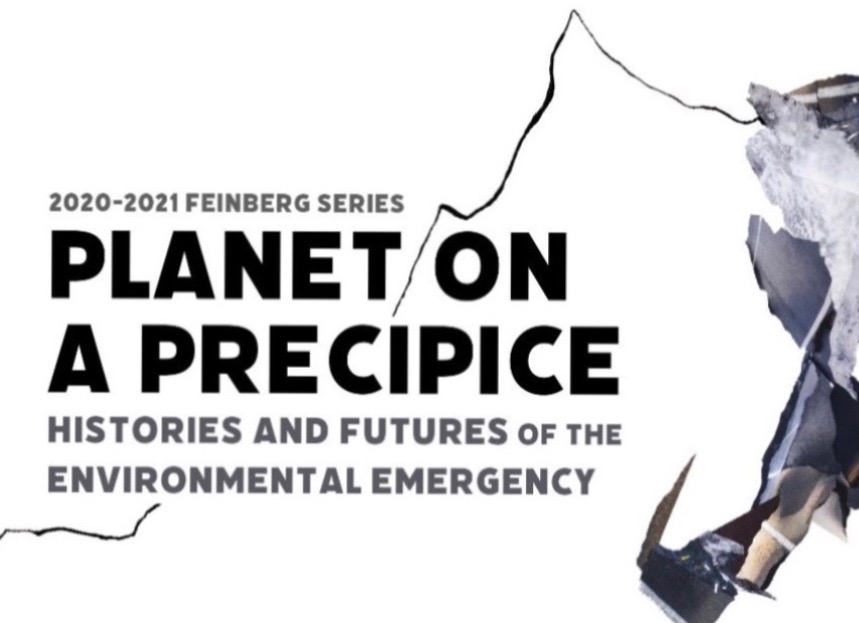UMass Presents Panel Discussion On Disaster Capitalism, Ecofascism and Euroauthoritarianism

Photo: UMass Department of History
Source: UMass Department of History
The UMass Department of History and The Feinberg Lecture Series will jointly sponsor a panel discussion on March 4 at 6 p.m.on Disaster Capitalism, Ecofascism, and Euroauthoritarianism. The panel will feature Katia R. Avilés Vázquez, Rajani Bhatia, and John Aloysius Zinda.
The gravity of climate change and the environmental emergency demands not just attention but concerted action. But what form will that action take? Will states exercise more authority to impose solutions without democratic process? Will corporations seize opportunities to rebuild devastated communities, privatizing land and infrastructure in the process? Will political movements tap climate fears to promote exclusionary immigration policies and enact violent attacks on scapegoats? Historically and today, ecological crisis has produced numerous such cases. The speakers on this panel will explore examples from China, Puerto Rico, and the U.S. that open a wider discussion of the threats to, and continued possibilities for, democratic action on climate change.
The speakers on the panel will explore examples from China, Puerto Rico and the U.S. that open a wider discussion of the threats to and continued possibilities for democratic action on climate change.
This event will be live and recorded on the Feinberg Series website, with a livestream on Facebook and YouTube. Spanish interpretation and closed captioning will be available.
TO PARTICIPATE LIVE REGISTER HERE
More info: feinberg@history.umass.edu
The Panelists
Katia R. Avilés-Vázquez, director of the Institute for Research and Action in Agroecology (Puerto Rico), holds a PhD in Geography from the University of Texas at Austin where she studied the Cultural and Political Ecology of small-scale farmers in Puerto Rico. Her research highlights community-based adaptations and engages the topic from a grassroots activism perspective. She balances research and activism, continually testing her work by applying alternative engagement theories, and helping document activists’ work. She has co-authored articles, book chapters, and technical reports, reflecting her belief that knowledge is a collective endeavor. After Hurricane María she has focused her work on local capacity building and the distribution of resources for local entities securing more than $11M for projects by and for Puerto Rico residents. Her work and activism has been highlighted in local and international news outlets, including Democracy Now and the Guardian, and she has received the EPA Environmental Champion Award and the ESF Graduate of Distinction Award.
Rajani Bhatia is associate professor of Women’s, Gender & Sexuality Studies at the University at Albany (SUNY). Through engagement as a scholar-activist within women’s health and reproductive justice movements, Rajani Bhatia has contributed to feminist analysis of global population control, right-wing environmentalism, coercive practices and unethical testing related to contraceptive and sterilization technologies both inside and outside the U.S. She is co-editor of a themed section of Gender, Place and Culture (2019), challenging scholarship that links population reduction with climate change adaptation and mitigation and the survival of the planet and author of Gender before Birth: Sex Selection in a Transnational Context (University of Washington Press, 2018). Topically, she has focused on issues that lie at the intersection of reproductive technologies, health, bioethics and biomedicine. She teaches diverse courses on health, the environment, and feminist science and technology studies.
John Aloysius Zinda is assistant professor in the Department of Global Development at Cornell University. An environmental sociologist, he studies how people create, struggle over, and sometimes resolve environmental concerns. Much of his work has examined how people and landscapes in rural China respond to developmental and environmental interventions around new national parks, afforestation, and agricultural livelihoods. He also examines how people respond to changing flood risk in the United States. His work has appeared in World Development, The China Quarterly, Society & Natural Resources, Geoforum, Rural Sociology, Human Ecology, and The Journal of Peasant Studies.
Sigrid Schmalzer (moderator) received her Ph.D. in History and Science Studies in 2004 from the University of California, San Diego. Her research focuses on social, cultural, and political aspects of the history of science in modern China and also includes the history of science activism transnationally. She has published numerous academic books and articles, along with a children’s picture book based on her research. In addition, she was the lead organizer for a conference held at UMass 11-13 April 2014, “Science for the People: The 1970s and Today,” which brought together students, scholars in Science and Technology Studies, and former members of the 1970s-1980s group Science for the People and is archived here: science-for-the-people.org. That conference helped inspire the revitalization of Science for the People (including the widely esteemed magazine), in which Professor Schmalzer now plays an active role.
